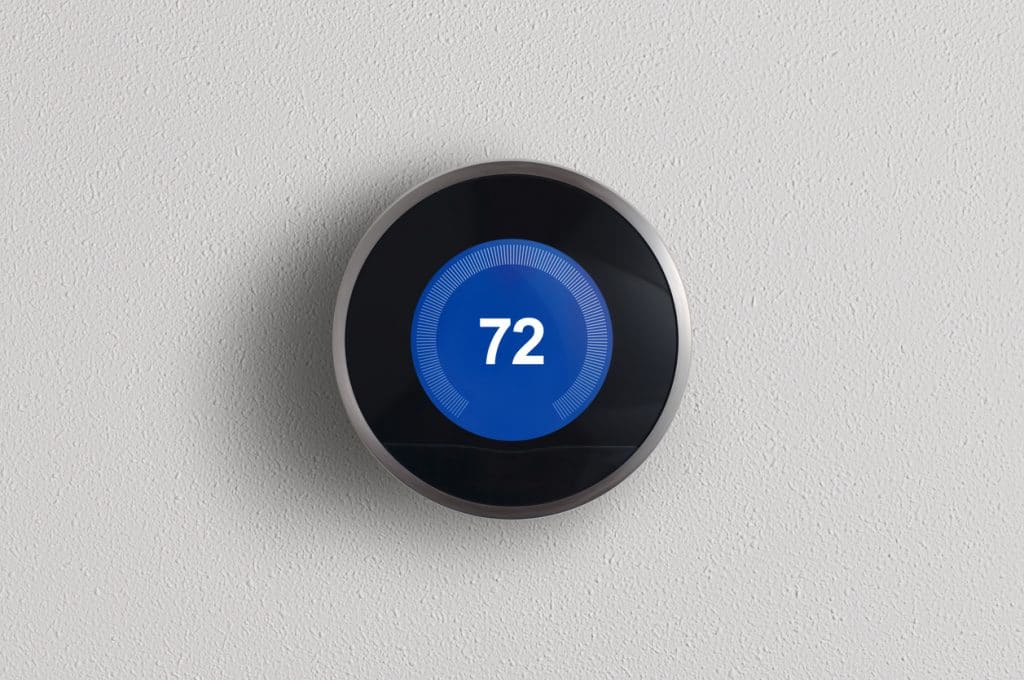The Heating, Ventilating and Air-Conditioning, or HVAC, system in the home is perhaps the most-overlooked player in the energy efficiency game, but it is not something a home energy score overlooks. Maybe it’s because most of the system — the ductwork — lives deep in the walls. “Out of sight, out of mind” would also apply to the HVAC unit itself, which in most homes is designed and located so as to be unobtrusive.
There’s a reason for that — temperature and blower adjustments are made through the thermostat, not through the HVAC unit. However, when’s the last time you had a certified maintenance person over to make sure everything in that big beige box is running as well as it could be? If it’s been more than a year, now’s the time — whether or not you’re listing your Portland home for sale.
Ordering a Portland home energy score? Unless your HVAC unit is in need of replacement (most have a lifespan of 10-15 years), simply going out to your nearest Portland home improvement store and buying the most efficient one on the market is not going to provide a great return on investment. Although the home energy score report does take into account the efficiency rating on your HVAC unit, it’s only a part of the bigger picture. So, instead of doing perhaps an unnecessary replacement, follow these tips to ensure that you’re getting the best performance out of the HVAC system you already have.
- Clean or change filters. Did you know that a dirty HVAC air filter can cause your utility bills to rise? It’s one reason that utility bills are not factored into your home energy score report — home owner behavior will change, while the performance of a given HVAC unit is fairly standard. However, for your HVAC to perform at the upper range of its efficiency rating, the filters must be clean. In fact, operating the unit with dirty filters can cause permanent damage — not to mention you’ll be breathing in dirty, dusty air. The good news is that the filters on most models can be changed without professional help, but do check the manufacturers’ instructions before you dive in. Although it may be a dusty job, it’s quick and easy to successfully change the filters on most standard units — and your lungs will thank you.
- Lucky duct? If a HVAC system is performing inefficiently, it’s most likely not the heating/cooling unit itself but the ducts that move air through the home. In fact, leaky ducts can reduce the efficiency of your HVAC system by up to 40 percent, according to EnergyStar.gov. Fortunately, this problem is fixable, and usually for a lot less than the cost of a replacement unit. Ducts lose airflow through joints and other openings; they also lose heat (or gain heat, when used for A/C) directly through their walls. Therefore, a two-step solution is required: Sealing the ducts to stop leaks, and adding insulation to prevent heat loss or gain. Although many ducts are in the walls of a home, the easiest place to access them is often in the basement or the attic. Especially in Portland, these spaces tend to be uninsulated, so protecting ducts there can go a long way toward boosting your home’s energy efficiency. And, duct sealing and insulation are two things your Home Energy Score Assessor will definitely be looking for when they score your home. Check out our DIY article on sealing and insulating ducts for more information.
- Check the thermostat. If your home lacks a pre-programmable thermostat, now may be the time to invest in one (keeping in mind that smart thermostats don’t do a whole lot more for the average user than the regular programmable kind, but they cost twice as much). Will a new thermostat boost your home energy score? Unfortunately, no: Like changing the filters, setting the temperature is considered a usage factor that is outside the scope of a home’s energy efficiency rating. However, most Portland homes are scoring in the 4-6 range in the Home Energy Score Assessment (which only takes into account the physical attributes of the home). With 10 being the most efficient home, buyers looking at homes in the middle energy-score range will be conscious of any feature that can help them control their energy use. Energy Star has found that a programmable thermostat can save up to $180 per year on heating and cooling, which makes it a worthwhile investment for both the home seller and the buyer.
- Call the pros for routine maintenance. This is another case where it won’t directly affect your home energy score, but deferring maintenance will impact the efficiency of even the latest, greatest HVAC system. Typical annual maintenance visits include calibrating temperature sensors, checking electrical connections, and removing dirt and debris from inside the unit itself. Haven’t replaced that filter yet? The HVAC maintenance technician will do it for you. This service call also includes a check of the entire system operation, including ducts, blowers, fuel inlet, and drains. Portland home maintenance experts recommend calling for this service well in advance of the peak winter and summer heating/cooling seasons, when breakdowns are most likely.
- Be sure your home energy score assessor can access the HVAC unit easily. To generate an accurate home energy score report, the assessor must be able to read the make and model, and basic details of your HVAC unit. If it’s outside the home, clear away dirt and debris. If you received third-party verification on the installation of the unit, having that paperwork handy is also a good idea.
Remember, sealing, and insulating your air ducts is one of the top five ways to improve your home energy score before you schedule your appointment. Curious what else you can do? We’re only a phone call away.

